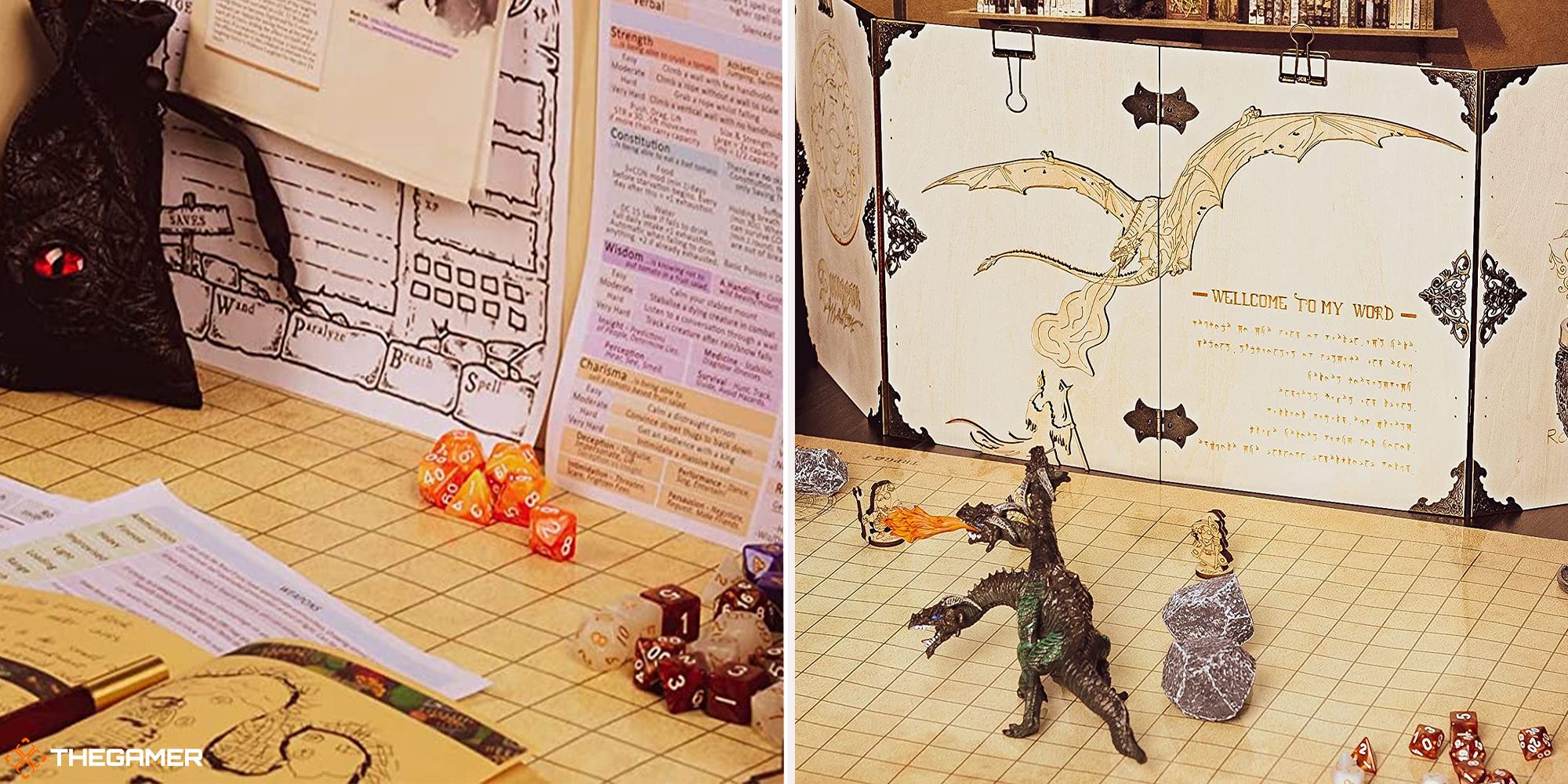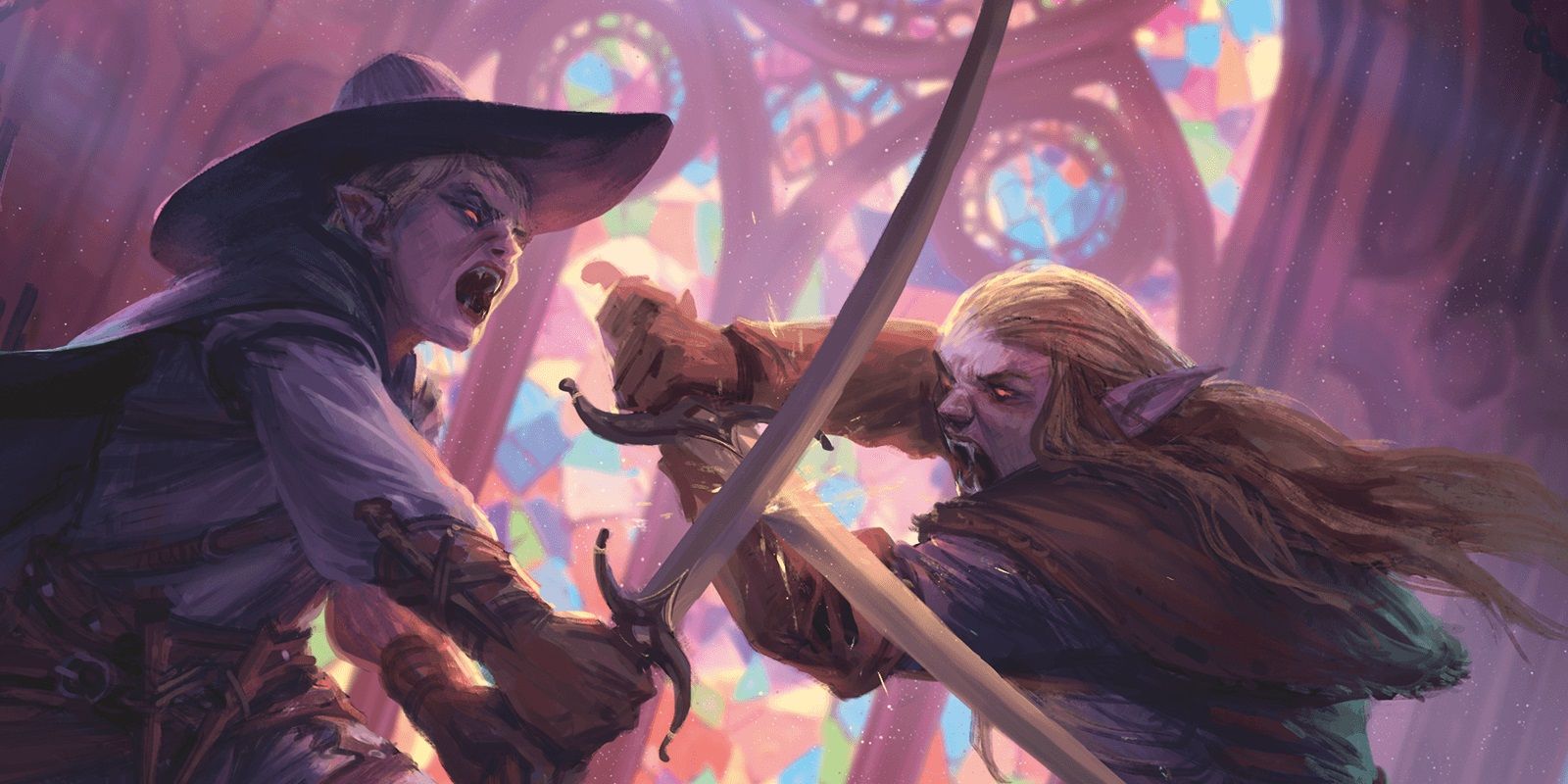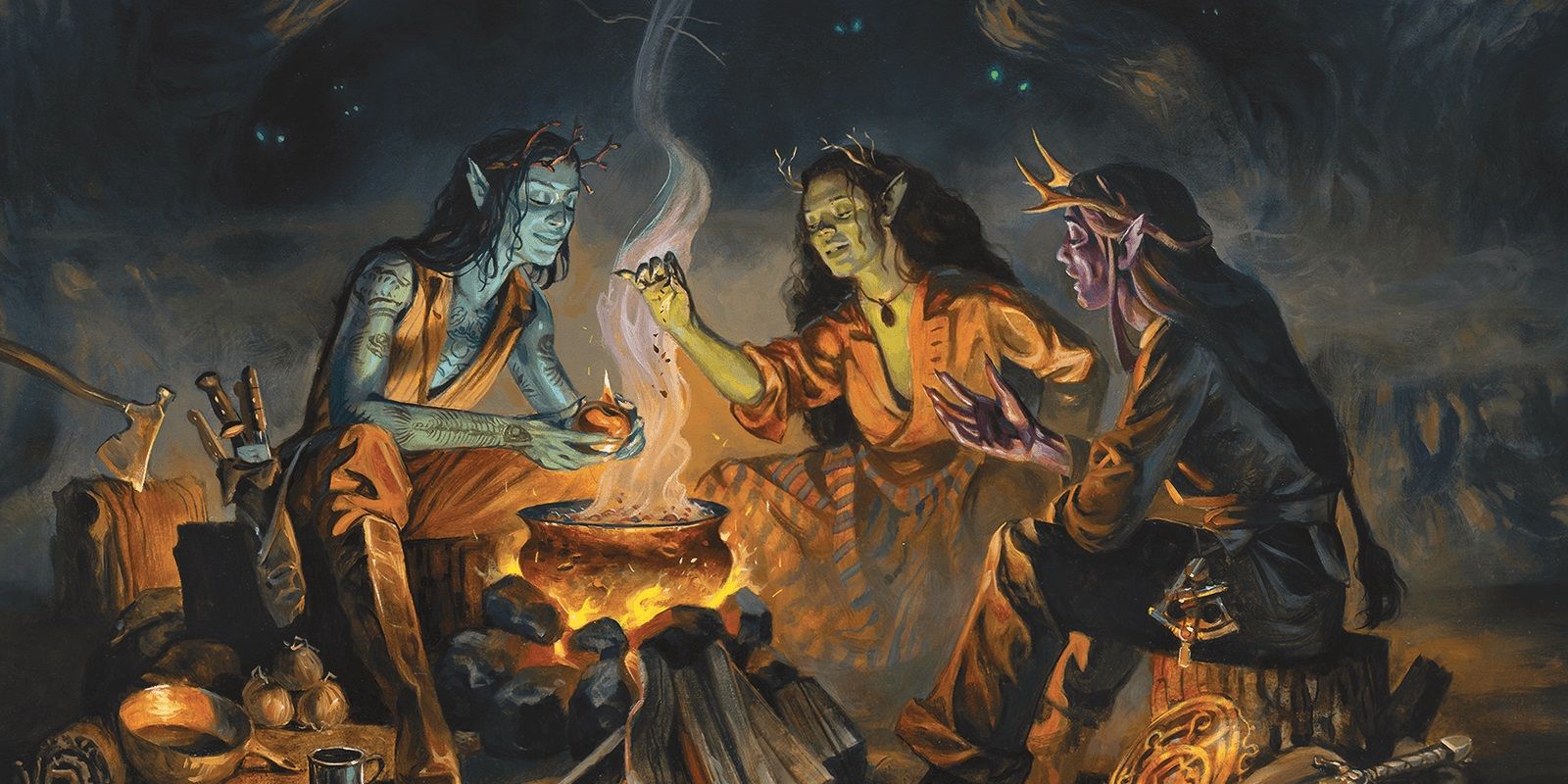Dungeons and Dragons (D&D) is a complicated game with several rulebooks full of instructions to be read in order to have a full grasp of the game. Of course, plenty of people play it off the cuff, and what's wrong with that? Even the people who do read all the rules will make modifications to them at times. Those are known as 'house rules.'
House rules change something about the way the rules say to play D&D. You may even use some house rules without realizing it. Do you force characters who use bows to count their shots, for example? That's a common skip for most people, as it often serves to be tedious and frustrating. If you're planning to modify your game, we've got a few tips for you.
6 Are You Keeping Track Of Them Somewhere?
Remember when we said that people may be using house rules without realizing it? We'd recommend avoiding that. You - and your players - should try to be aware of any modifications you're making to the rules as written. Unless you can guarantee that you can memorize two or more rulebooks worth of information, something is bound to slip through the cracks, but it's a good general rule.
If nothing else, it helps you to avoid a situation where you're halfway through a game and just realized you've been playing wrong. What will you do? Do you start forcing the archer character to count their arrows all of a sudden? What if the player argues that that's unfair?
5 Is There Such A Thing As Too Many House Rules?
Once you start creating and incorporating house rules, it can be tempting to go wild and make a bunch of them. It's worth restricting yourself, though, and focusing on just a few.
Now, we don't mean this in a D&D purist, the-rules-as-written-are-the-best-and-only-way-to-play, kind of way. Rather, we want to point out that modifying the game too much can have a lot of negative repercussions. Your players may struggle to remember all of them, to start. In addition, D&D's various abilities and rules are all meant to balance each other out, so, the more changes you make, the more likely your house rule is going to interfere with another stat or ability or rule in a way you totally missed.
However, if you do still find yourself tempted to change the game even more, have you considered trying out another tabletop roleplaying game? D&D might be the most famous and popular, but there are lots of other options to choose from whose rules and structure might sit with you better!
4 How Are You Introducing The Rule?
It's worth taking time to consider how you're introducing these rules to your party. It's different for every group. Maybe you and your friends have been playing together for years and have collectively curated your list of house rules. Maybe this is a brand-new group. Maybe everyone in the party has lots of experience with the game. Maybe none of them have played D&D before in their lives. Maybe you have a small party. Maybe you have a large one.
As a general rule, your game's Session Zero (introductory session, before the campaign starts) is a good time to talk about house rules with your players. After all, Session Zeros are times to talk about any and all questions, concerns, problems, etc. that anyone may have going forward.
If you come up with a house rule midway through a game, though, it may be a little more complex. You should, at the very least, not just decide to start enforcing it out of nowhere. That's a guaranteed way to piss off your players. Find a time to chat with them and discuss how it might impact the game and whether it should be implemented.
Hand-in-hand with this, you can consider which of your house rules - if any - you aren't willing to give up, even if a player has a problem or concern about them.
3 Have You Considered The Unintended Consequences?
As we mentioned, Dungeons and Dragons is a balancing act. The creators spend a lot of time making sure, for example, that the various classes have strengths and weaknesses that generally even them out, making no individual character too overpowered. The implications of any one change can have ripple effects throughout the game.
Consider the example we mentioned before: allowing your player not to count their arrows.
In the long run, it means that the player won't need to spend their money buying arrows. Maybe that means that they have more money than the rest of the party, or results in them not heading to towns nearly as often. These are all things that can affect your game subtly.
For a more in-the-moment problem, consider what creative things a player might think to do with unlimited arrows. Perhaps you purposefully put the players in a situation where they need to hunt to survive and live on the bare necessities - what's to stop a player from turning their unlimited arrows into sticks for their fire, or doing it for even longer until they have enough for a shelter? Or, perhaps the party is short on money. Can the player sell their arrows infinitely to fund all of their schemes?
2 How Will You Deal With Problems That Arise?
Okay, so let's say that you made a house rule like the one about the unlimited arrows, but it's biting you in the ass later. What do you do about it?
Of course, as the Dungeon Master (DM), your word is law. That doesn't mean your players will like your decision, though, and the worst thing for a D&D session is a bad attitude at the table. It's best to set up expectations about these rules when you introduce them to the players. Will you abide by the rule as you've made it, even if the players come up with a creative twist on it? Or will you give yourself power to intervene if the rule isn't being used as it was intended? If your players have a problem with whichever option you chose, they'll be able to bring it up to you when you're not all in the heat of the moment.
1 What Kind Of Players Are At Your Table?
The goal of the house rule is singular: have more fun. Sure, the rule might actually solve a problem, make something easier, or add humor or depth to something, but at the end of the day, you're just trying to make D&D a more enjoyable experience!
As a result, it's crucial to ask yourself a question: what kind of game do my players enjoy? You might be DMing for a group that loves to roleplay! If so, then a house rule modifying combat might not mean much to them. A house rule shortening combat might be a hit. It's just the same as when you're building a campaign from scratch, too, or even when you're running a campaign in the moment. For a party that loves to talk, you might skip some random encounters with enemies. You might write a more interesting, in-depth villain for the story. In the same way, house rules can help you to tailor the experience.

-dice-and-sheet-(right).png)

-gameplay-and-dice-(right).jpg)


---DM-screen-with-notes-in-front-of-it.png)
